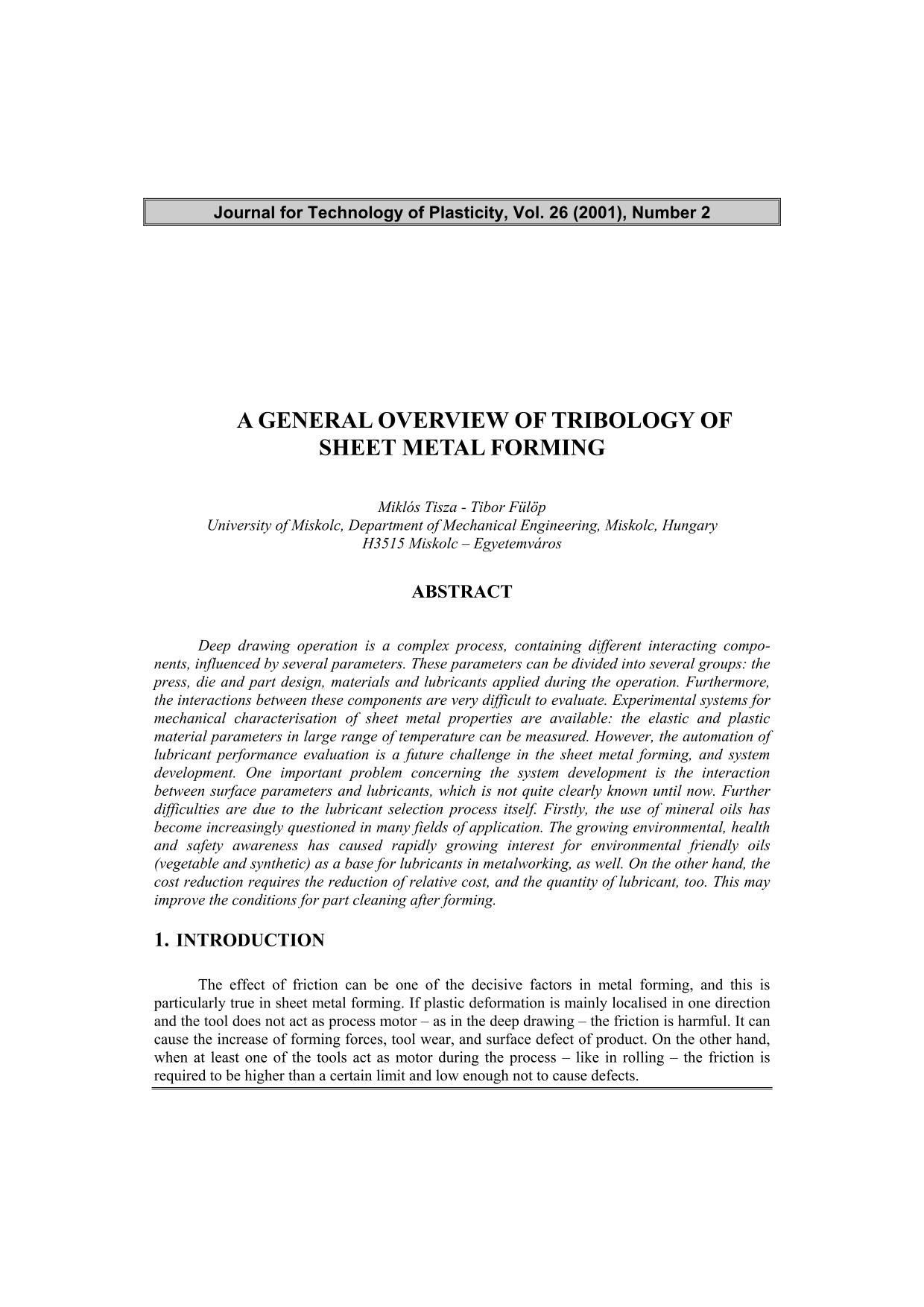
Published 2001-12-28
abstract views: 224 // Full text article (PDF): 175
How to Cite

This work is licensed under a Creative Commons Attribution 4.0 International License.
Abstract
Deep drawing operation is a complex process, containing different interacting components, influenced by several parameters. These parameters can be divided into several groups: the press, die and part design, materials and lubricants applied during the operation. Furthermore, the interactions between these components are very difficult to evaluate. Experimental systems for mechanical characterisation of sheet metal properties are available: the elastic and plastic material parameters in large range of temperature can be measured. However, the automation of lubricant performance evaluation is a future challenge in the sheet metal forming, and system development. One important problem concerning the system development is the interaction between surface parameters and lubricants, which is not quite clearly known until now. Further difficulties are due to the lubricant selection process itself. Firstly, the use of mineral oils has become increasingly questioned in many fields of application. The growing environmental, health and safety awareness has caused rapidly growing interest for environmental friendly oils (vegetable and synthetic) as a base for lubricants in metalworking, as well. On the other hand, the cost reduction requires the reduction of relative cost, and the quantity of lubricant, too. This may improve the conditions for part cleaning after forming.

